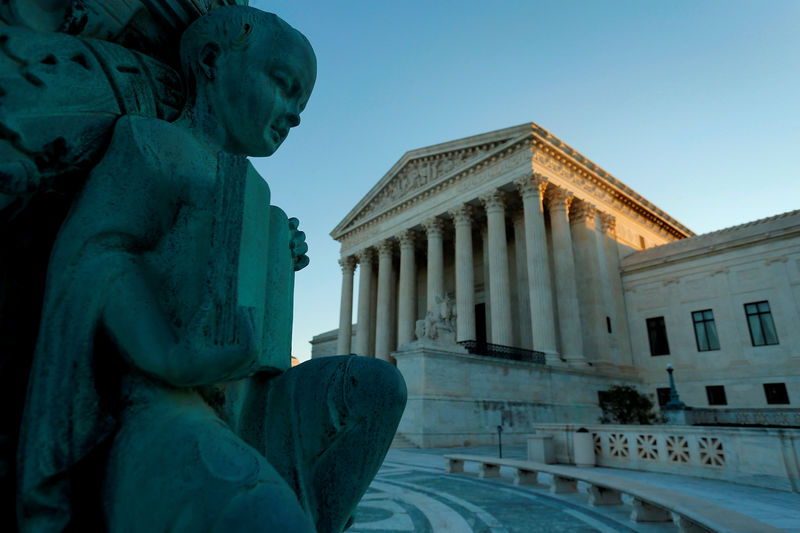By Lawrence Hurley
WASHINGTON (Reuters) - U.S. Chief Justice John Roberts took issue on Wednesday with the Trump administration's stance in an immigration case, saying it could make it too easy for the government to strip people of citizenship for lying about minor infractions.
Roberts and other Supreme Court justices indicated support for a deported ethnic Serb immigrant named Divna Maslenjak over her bid to regain her U.S. citizenship after it was stripped because she falsely stated her husband had not served in the Bosnian Serb army in the 1990s after Yugoslavia's collapse.
Roberts seemed particularly concerned that the government was asserting it could revoke citizenship through criminal prosecution for trivial lies or omissions.
He noted that in the past he has exceeded the speed limit while driving. If immigrants failed to disclose that on a citizenship application form asking them to list any instances of breaking the law, they could later lose their citizenship, the conservative chief justice said.
"Now you say that if I answer that question 'no,' 20 years after I was naturalized as a citizen, you can knock on my door and say, 'Guess what, you're not an American citizen after all?'" Roberts asked Justice Department lawyer Robert Parker.
Roberts described the administration's interpretation as inviting "prosecutorial abuse" because the government could likely find a reason for stripping citizenship from most naturalized citizens.
"That to me is troublesome to give that extraordinary power, which, essentially, is unlimited power, at least in most cases, to the government," Roberts added.
President Donald Trump has sought to restrict immigration and deport people who have entered the United States illegally.
Maslenjak entered the United States with her husband and two children in 2000, granted refugee status over a claimed fear of ethnic persecution in Bosnia at the hands of Muslims. They settled in Ohio. She became a U.S. citizen in 2007. At issue is her concealment of her husband Ratko's service in a Bosnian Serb Army brigade that participated in the notorious 1995 massacre of 8,000 Muslims in the Bosnian town of Srebrenica.
Maslenjak's citizenship was revoked. She and her husband were deported to Serbia last October.
'RATHER SURPRISING'
Liberal Justice Stephen Breyer shared Roberts' concern, noting he had once walked into a government building with a pocketknife on his key chain in violation of the law.
"It's, to me, rather surprising that the government of the United States thinks that Congress is interpreting this statute and wanted it interpreted in a way that would throw into doubt the citizenship of vast percentages of all naturalized citizens," Breyer said.
Conservative Justice Anthony Kennedy also rebuked Parker, saying, "It seems to me that your argument is demeaning the priceless value of citizenship."
There are around 20 million naturalized U.S. citizens, according to the Migration Policy Institute.
The legal question is whether Maslenjak's false statements had a material effect on the U.S. decision to grant her refugee status. The government argued it only matters that she made a false statement, not whether it had any impact on its decision to grant refugee status.
At a 2009 hearing to help her husband avoid deportation after he was convicted of making a false statement by concealing his military service, she admitted that when she had applied to be a refugee she had not revealed that from 1992 to 1997 the family lived in Bosnia and her husband served in the military. She was later convicted of lying on her citizenship application.
This was the last oral argument of the court's current term. A ruling is due by the end of June.
